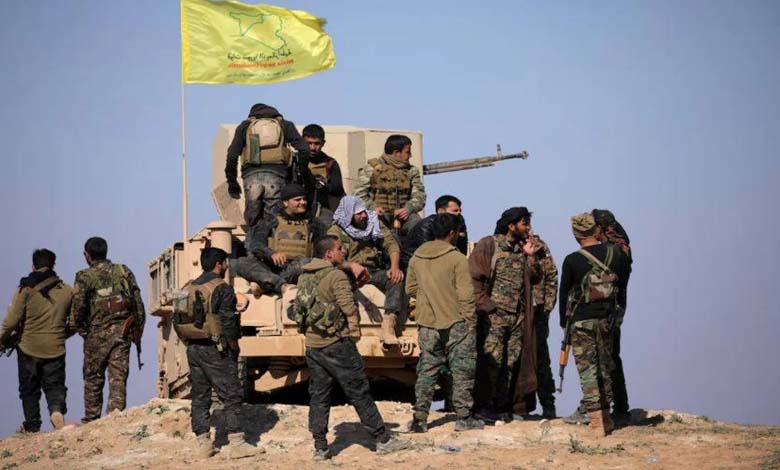Clashes between the Syrian Army and the SDF disrupt the reconciliation and integration process

A new attack by the Syrian Democratic Forces on Syrian army positions in the town of Maadan, in Raqqa province, exposes the fragility of the March 10 agreement.
Intense clashes broke out after the Syrian Democratic Forces launched an attack from areas under their control on positions held by the Syrian army in Maadan, in Raqqa province (northeast Syria). This incident highlights escalating tensions between the two sides and underscores the difficulties facing the implementation of the agreement signed on March 10, amid persistent military escalation.
-
Damascus and Talks with the SDF: No Dialogue Under the Threat of Arms
-
New U.S. Plan to Fund the SDF Signals Rising Tensions with Turkey
The SDF launched an assault on Syrian army positions in eastern Raqqa, triggering heavy fighting between the two sides. The Syrian army responded with artillery strikes targeting SDF positions.
Local sources reported that several Syrian soldiers were killed in the attack, without providing further details. Observers note that these clashes and the state of alert are not simply a reaction to an isolated event but are part of a long-standing pattern of tension between the two parties.
This escalation reveals the fragility of the agreement between the SDF and the Syrian army, as the clashes continue despite efforts to integrate the SDF into the regular armed forces and despite the Kurdish leadership’s reservations regarding several provisions of the agreement.
-
U.S. Troop Reduction in Syria Puts SDF in Disarray
-
Children in the Grip of Extremism: SDF Uncovers ISIS Secret Cells in Roj Camp
In recent months, armed clashes between the two sides have been reported in provinces such as Raqqa, Deir ez-Zor, and Aleppo, indicating that reconciliation and the establishment of lasting peace will not be easy, especially with unresolved issues such as the integration of the SDF into the Syrian army.
Syrian President Ahmad Al-Sharaa had called during a visit to Washington this month for the United States to play a direct supervisory role in the integration process, stressing that this step is essential for rebuilding state institutions on unified national foundations while preserving Syria’s territorial integrity.
Washington believes that integrating the SDF into the regular army could pave the way for a comprehensive settlement that ends years of conflict and prevents extremist groups from re-emerging in northern and eastern Syria.
-
SDF Fights Syrian Army, Calls on Coalition to Combat ISIS
-
American Failure in Managing the SDF and Tribal Crisis Warns of Escalation in Battles
For his part, SDF commander Mazloum Abdi welcomed the proposal for US supervision, affirming that his forces were prepared to accelerate the integration process within a national framework that guarantees rights and strengthens Syria’s unity. However, no tangible progress has been made, while the security situation between the two sides continues to deteriorate, leading to recurring clashes.
The March 10 agreement stipulated the integration of civilian and military institutions affiliated with the SDF into state bodies, including the management of border crossings and oil and gas fields.
-
SDF Accuses Iran of Fueling ‘Tribal Uprising’ in Deir ez-Zor
-
Washington resumes operations with SDF amid Turkish threats
This agreement, described by diplomatic circles as the most significant Syrian peace document in years, aimed to end administrative and military separation in the north and east of the country and to prepare for the full return of these areas to Damascus’ authority.
Turkey has also intervened against the backdrop of worsening security conditions in northeast Syria. Turkish Foreign Minister Hakan Fidan declared recently that Ankara would not allow any environment in Syria to take root that threatens Turkey’s national security, in reference to its rejection of the SDF’s escalatory actions.












